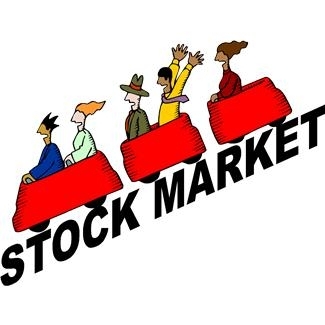| Home | About | Archives | RSS Feed |

The Independent Investor: Should You Be Worried About October?
A common perception on Wall Street is that October is the worst month of the year for the market. It is true that the month has historically failed to provide stellar returns, but it is actually September that deserves the title of the worst market month of all.The good news is that September is over. Does that mean we can look forward to better times ahead? Well not quite; we still have to deal with October, which like March, is usually a month that begins like a lion and ends like a lamb as far as selloffs are concerned.
 So what makes investors so fearful of October? It might be because October has ushered in some auspicious dates of calamity beginning with a 12.8 percent plunge in the Dow on Oct. 29, 1929. In today's markets, a 12 percent plunge doesn't feel like a big deal but back then it was substantial and it didn't stop there. The market went on to lose 90 percent of its value and usher in the Great Depression.
So what makes investors so fearful of October? It might be because October has ushered in some auspicious dates of calamity beginning with a 12.8 percent plunge in the Dow on Oct. 29, 1929. In today's markets, a 12 percent plunge doesn't feel like a big deal but back then it was substantial and it didn't stop there. The market went on to lose 90 percent of its value and usher in the Great Depression.Then there was the stock market crash of Oct. 19, 1987. That was my first of many encounters with stock market meltdowns throughout the world. Fortunately, it was a short, sharp decline and the U.S. markets recovered quickly.
And how could we forget October 2008? It was the worst month for the S&P 500 Index, NASDAQ and the Dow in 21 years. Global equities lost $9.5 trillion that month and it was the most volatile 30 days in the S&P 500's 80-year history. We registered the most down days in a single month since 1973.
Actually, despite these gruesome statistics, October historically turns out to be the seventh-best month to own stocks, tied with April, putting it in the middle of the pack.
September, on the other hand, is the bad boy of the calendar year. It holds the record for most miserable month as far back as 1929. If we look even further back in history we discover the root cause of September's stock market underperformance.
Back in the day, much of 19th-century American commerce consisted of East Coast purchases of newly harvested crops from the South and Midwest regions for sale to the rest of the country. September was harvest month so bankers and other investors would borrow large sums of money from Wall Street, temporarily pushing up interest rates while redirecting money flows away from stocks and into the bond market. This would also coincidentally push down prices in the stock market that month.
Although money flows have long since been regulated by the Federal Reserve for events like the planting season, the tradition of down Septembers persist. Since 1959, the S&P 500 Index has declined an average of 0.9 percent in September. In the first two years of a presidential term, the performance is a bit worse. Overall, investors have suffered the most double-digit losses in that month as well.
In today's world, other concerns might explain September's continued poor performances. There is the "back to work" phenomenon, which occurs just after the Labor Day holiday. Many investors typically take the summer off and when they come back are disappointed to find that their portfolios gained little during the summer months. They lose patience and sell.
One reason for that disappointment may be that a company's earnings for the year have not met the expectations of the market. The normal end of June, early July, quarterly earnings announcements oftentime disappoint. What may have seemed a reasonable expectation by company management at the end of the prior year may not be a reasonable estimate by mid-year for a variety of reasons. The company's stock price may decline or simply mark time temporarily. Many investors won't want to hang around for yet another earnings disappointment at the end of September, so they sell ahead of earnings season.
This year, September has certainly lived up to its reputation with the averages declining almost 5 percent overall while volatility has skyrocketed. The bottom line is that if September is usually the month when crashes occur, then October is the month that ends them. Since September is over, the good news is that we have weathered the worst and if history is any guide, the future should be a bit better.
Bill Schmick is an independent investor with Berkshire Money Management. (See "About" for more information.) None of the information presented in any of these articles is intended to be and should not be construed as an endorsement of BMM or a solicitation to become a client of BMM. The reader should not assume that any strategies, or specific investments discussed are employed, bought, sold or held by BMM. Direct your inquiries to Bill at (toll free) or e-mail him at wschmick@fairpoint.net . Visit www.afewdollarsmore.com for more of Bill's insights.
@theMarket: Highway to the Danger Zone
|
"Highway to the Danger Zone
I'll take you Right into the Danger Zone" — Kenny Loggins from the movie "Top Gun"
|
One would think that the world is coming to an end. By Friday morning every headline, every opening sound bite on television and on the radio began with the massive declines experienced by world stock markets this week. Take all this with a grain of salt.
"You never bet on the end of the world," said Art Cashen, the experienced Wall Street veteran and director of floor services for UBS. "That only happens once and the odds of something happening once an eternity are pretty long."
 I respect Art and agree with his prognosis. Readers get a grip. This is a correction, a nasty decline for sure, and will, by the end, take away as much as half of the gains you have made since March, 2009. But remember, even if you are still one of those buy and hold, hold-out investors, you are still up 50 percent from the lows.
I respect Art and agree with his prognosis. Readers get a grip. This is a correction, a nasty decline for sure, and will, by the end, take away as much as half of the gains you have made since March, 2009. But remember, even if you are still one of those buy and hold, hold-out investors, you are still up 50 percent from the lows."But I'm still underwater from what I had in 2007," laments one reader from Connecticut.
For years I have been imploring readers to find a money manager or broker who does not believe in holding a portfolio through thick and thin. It is a recipe for disaster, in my opinion, that only works during certain specific time periods. The first 20 years of this, the 21st century, is not one of those periods. The problem is that only a small handful of investment advisers (less than 5 percent) within the financial services community actually buy and sell. But since it's your money, I would urge you to do the work and find one.
It may not be the end of the world, but at the same time I am not discounting the risks that face us. We are truly accelerating down the highway into an economic danger zone. The continuing weakness in our own economy, the very real possibility of a European bank failure and Greek default, a hard landing in China, plus another half-dozen potential mind fields does not give one a high degree of comfort. When one acknowledges that we lack the leadership, both here and abroad, to handle this dogfight, even Maverick and Goose might panic.
Instead, it is a time to stay calm and focused. Remember, I was here for you through 2008-2009 and if you followed my advice then you did very well. And I'm here for you now.
No one who reads this column consistently should be surprised with the market's recent declines. In last week's column, John Roque, my friend and one of the best technical analysts on Wall Street, clearly indicated that he thought that a decline to 950 on the S&P 500 Index was a strong possibility. I agree with him wholeheartedly. Yet, even at 950, I don't believe it is the end of the world as we know it.
It also does not mean that stocks must go straight down to that 950 level. I expect there will still be some ferocious rallies to the upside, like we experienced the week before last, where the indexes gained 6-7 percent in three days. I advised investors to sell those rallies. If you haven't already taken my advice and reduced your equity holdings, do so on the next bounce and move into cash or bonds.
Some retired investors need to remain in dividend-paying stocks because they are dependent on the income to make ends meet. If you are in that category, then please consider hedging those holdings with covered put options or inverse exchange traded funds.
On a short-term basis, the markets are oversold. I would not be surprised to see another bounce ahead of us but it does not change the overriding trend, which is down, act accordingly.
Bill Schmick is an independent investor with Berkshire Money Management. (See "About" for more information.) None of the information presented in any of these articles is intended to be and should not be construed as an endorsement of BMM or a solicitation to become a client of BMM. The reader should not assume that any strategies, or specific investments discussed are employed, bought, sold or held by BMM. Direct your inquiries to Bill at (toll free) or e-mail him at wschmick@fairpoint.net . Visit www.afewdollarsmore.com for more of Bill's insights.
@theMarket: Sitting This One Out
 Trading in the stock market right now is akin to having your pocket picked by a blind man whose pocket you just picked a moment ago. In other words, get to the sidelines if you aren't already there.
Trading in the stock market right now is akin to having your pocket picked by a blind man whose pocket you just picked a moment ago. In other words, get to the sidelines if you aren't already there.
Gapping up and then down to the tune of 1 or 2 percent a day is not my idea of an investable market. And just about every day this week we have witnessed this sort of schizophrenic behavior. Those, for example, who may have been feeling pretty good about catching the market just right last week, have watched all their gains disappear.
This week the game was to sell the market down early Sunday night into Monday morning, then buy the lows, rally back up until Fed Chairman Ben Bernanke spoke on the economy on Wednesday, take profits after that, then rally back, in anticipation of President Obama's speech on Thursday night. But since no one really thinks the president will have much of a chance getting another stimulus plan through Congress, traders went short the market before the speech. Friday, of course, was a big down day.
Don't think you can outwit the pros in this game because most of the action is occurring prior to the U.S. market opening. By the time you get to put an order in to buy a stock or ETF, you are already chasing the price. And who do you think is selling this security to you? You guessed it, the prop trading desk that purchased it early in the morning in Europe or Asia. As the markets become even more volatile, traders are increasingly focusing on buying before the U.S. open, selling in the opening hour of U.S. trade, buying back when Europe closes at midday, and selling or buying again around 2:30-3 p.m.
I've watched in amusement as the talking heads on television change their minds about the market on a daily basis, based on whatever the averages are doing on a given day. First they are bullish, then bearish. They like the financials and then they don't. Wouldn't it be nice if they just back off and admit they haven't a clue about what is going on? At least that would be truthful and honest.
In markets like this, where the fundamentals are practically impossible to discern, most traders rely on technical analysis. Buy at support, sell at resistance — seems easy — but in today's markets that concept has taken on an entirely new meaning. It is possible, thanks to computers, algorithms and software programs to identify technical levels to buy and sell on a daily, hourly or even minute-by-minute basis.
Make no mistake; you can make a lot of money doing that if you are on the right side of the market. The problem is most individual investors are completely outgunned, with none of the technology the big guys have to guide them in this exercise. You can lose a lot of money in a market like this. That is why I have advised all my readers to move to the sidelines and wait this out.
"But how long will this go on?" exclaimed one frustrated client.
The glib answer is as long as it takes. September and October are normally the worst months of the year for stocks, and so far that has turned out to be true. Europe and its problems are still very much in the forefront of investors' attention. Sadly, the news from across the pond continues to be discouraging. There are even public comments from some of the EU countries that Greece should be forced to exit the Euro. That is something that only two months ago no European leader would dare to say.
Over here, things are not much better. If we aren't already in a recession, we are within a hair's breadth of a long-feared double dip. Much will depend on what comes out of Washington and so far the news is not encouraging. Obama's $447 billion stimulus plan announced Thursday night was simply more of the same policies that have already proven to have no lasting impact on economic growth or unemployment.
Whether or not the GOP will go along with part of this plan remains to be seen. But the market has already given its verdict — it's not nearly enough — which leaves the Federal Reserve and its upcoming meeting on Sept. 20 to save the day. I'm stunned at how much weight the market is giving to this meeting.
Are we setting ourselves up for an even bigger fall? Will there be a QE III and if so will it actually do any good? I wish I knew, but at least I'm honest enough to admit that I don't know. And when I don't know I move to the sidelines, comprende?
Who said finance is boring?
Bill Schmick is an independent investor with Berkshire Money Management. (See "About" for more information.) None of the information presented in any of these articles is intended to be and should not be construed as an endorsement of BMM or a solicitation to become a client of BMM. The reader should not assume that any strategies, or specific investments discussed are employed, bought, sold or held by BMM. Direct your inquiries to Bill at (toll free) or e-mail him at wschmick@fairpoint.net . Visit www.afewdollarsmore.com for more of Bill's insights.
|

